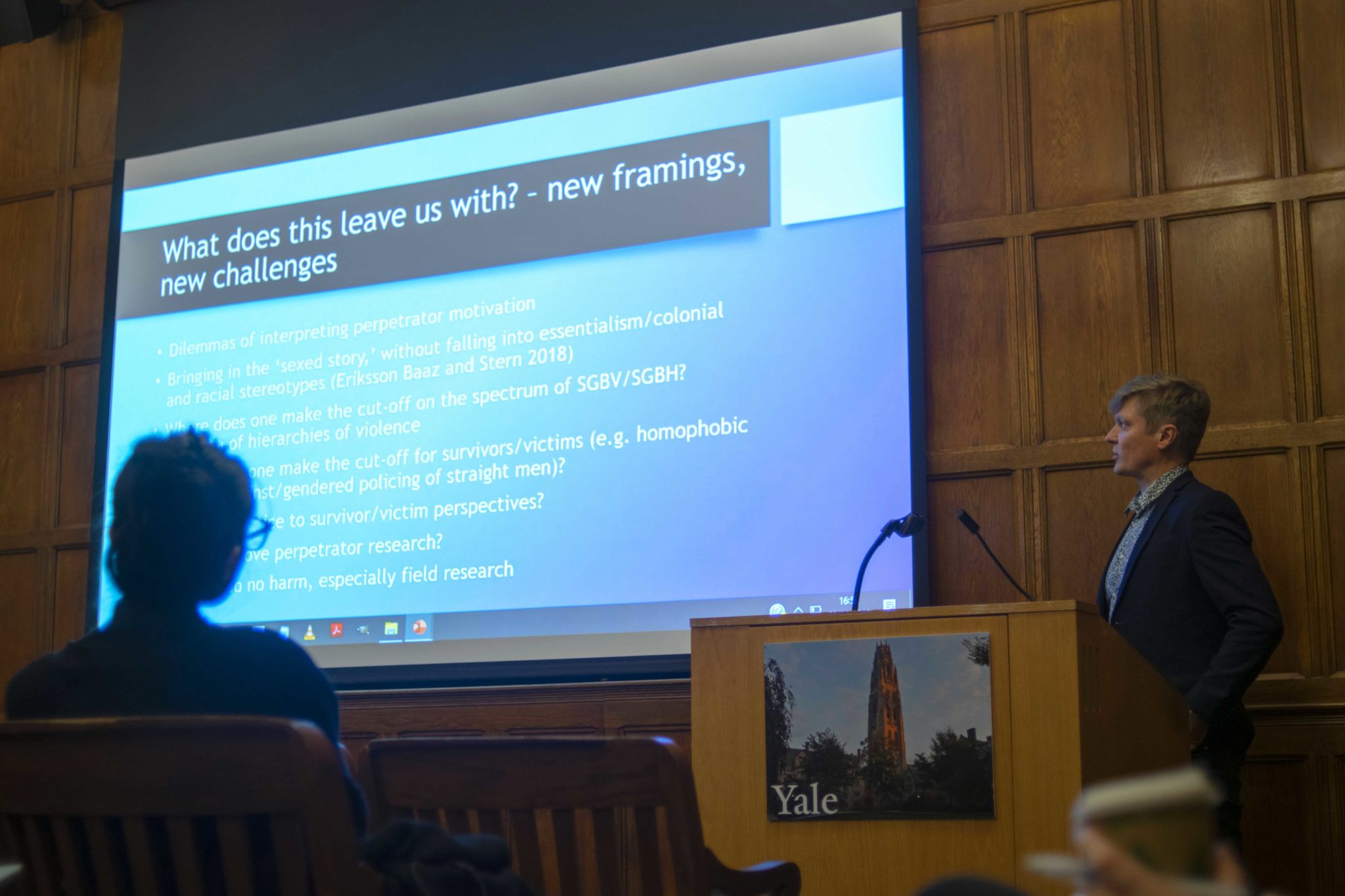
Sanya Nijhawan
On Wednesday night, biographer Ian Thomson discussed the works of Primo Levi — a Holocaust survivor who wrote to process the horrors he faced — before a crowd of nearly 70 attendees.
Thomson — author of the biography “Primo Levi: A Life” — spoke about the subject of his book before discussing his own work as an author. The event was sponsored by the Department of Italian Language and Literature, the Yale Program for the Study of Antisemitism, the Fortunoff Video Archive for Holocaust Testimonies and the Joseph Slifka Center for Jewish Life at Yale.
“It’s very exciting to have one of the world’s leading experts on Primo Levi come to Yale and it’s a real honor to have him here,” said French professor Maurice Samuels, who is the director of the Program for the Study of Antisemitism. “Primo Levi is one of the most important survivor voices of the Holocaust, so I think it’s very important to understand everything that we can about his experience, both during the war and after the war.”
After Levi was taken to Auschwitz in February 1944, he spent nearly a year in the concentration camp until the Red Army liberated him in January 1945. The Soviet Union’s role in his survival made Levi considerably more sympathetic than other Italians to their cause, Thomson said.
Prior to the Holocaust, Levi worked as a trained chemist. According to Thomson, this profession allowed him to spend time in the chemical laboratory, which was warmer and served more nutritious food than in other parts of the camp. Thomson said Levi owed his survival to this advantage.
Levi began his writing career after surviving the Holocaust. His “need to bear witness” to the events he experienced was so intense that he found himself writing “on the backs of train tickets, scraps of paper … anything he could find,” Thomson said.
According to Thomson, Levi once told him in an interview, “If I had not written my book, I would have remained one of the damned of the Earth.”
Thomson discussed Levi’s use of classical literature, such as Dante’s Divine Comedy. Levi often reflected on famous works in order to put his darkest life experiences in conversation with the past.
“Levi’s modern view of hell is far more disturbing than the pitchforks of Dante’s Inferno,” Thomson said. He added that the Divine Comedy helped Levi to “communicate the spiritual desolation of Auschwitz.”
Organizers of the event highlighted the importance of hosting such a talk about historical memory and the Holocaust, especially given the worldwide increase in xenophobia, racism, nationalism and antisemitism.
According to Italian professor Millicent Marcus, the issues that the Holocaust created have not been fully addressed and are still “terribly, unfortunately alive today.”
Yale Jewish Chaplain Jason Rubenstein said these conversations prompt questions about how the American public addresses “the rise of authoritarianism [and] ethno-nationalism.”
“That question of political framing has always involved the Holocaust and Germany’s treatment of the Jews and others,” Rubenstein said. “For that reason, it is an essential question of Jewish memory.”
He said that given Yale’s resources and opportunities, he feels an obligation to deeply consider these questions with other scholars.
The recent rise of antisemitism around the world is affecting the practices of synagogues and other Jewish organizations, according to Rubenstein.
“American Jewish institutes, including Slifka, have to think more seriously about our security … because of things like the Tree of Life and Poway shootings,” he said.
There will be a lunchtime discussion with Thomson on Friday at 11:45 a.m. in the Slifka Dining Hall Seminar Room. The meal is open to all undergraduates.
Ella Goldblum | ella.golblum@yale.edu and
Julia Brown | julia.k.brown@yale.edu







